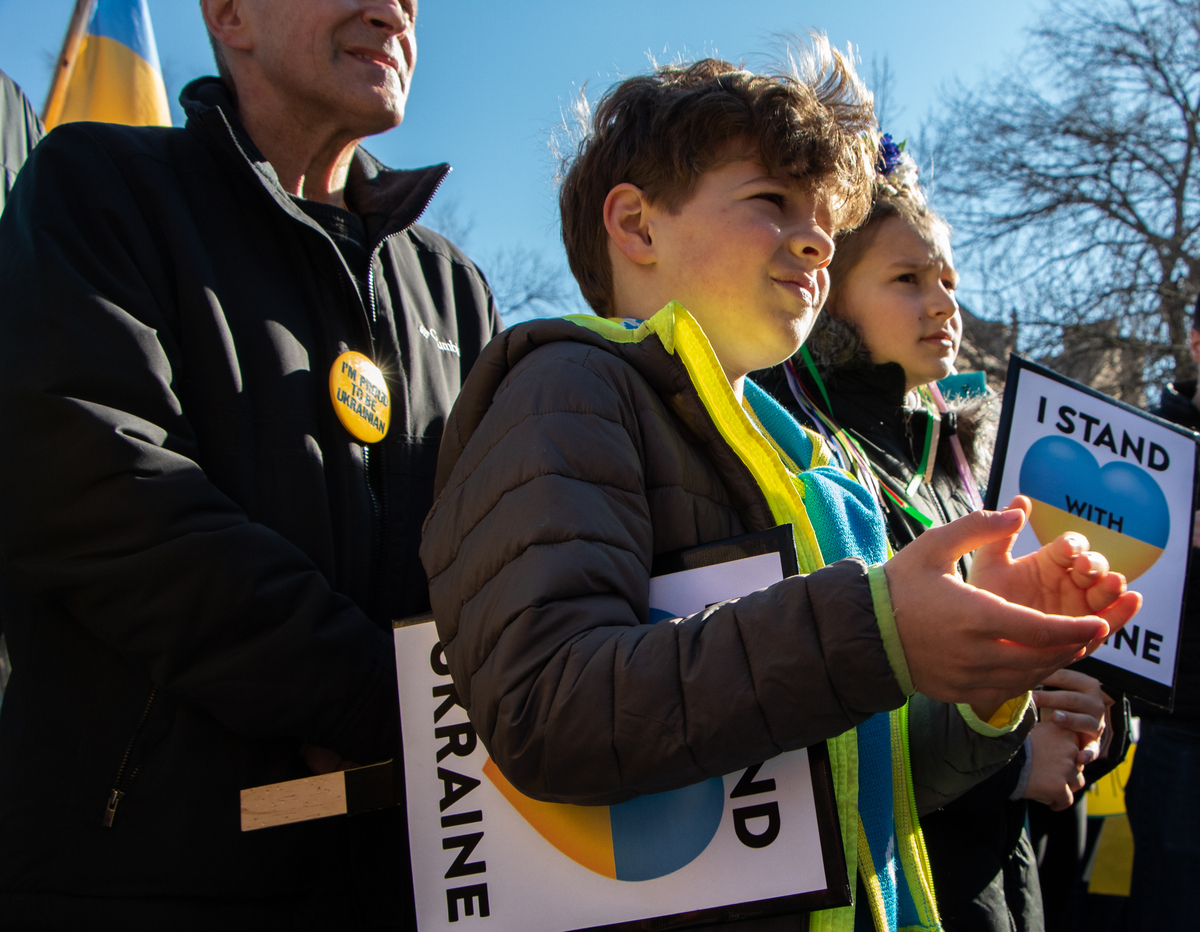Yale experts assess recent developments in ongoing war in Ukraine
As the war in Ukraine continues, Yale professors continue to facilitate dialogue on campus and provide insight into the conflict.

Zoe Berg, Photo Editor
As Vladimir Putin’s war of aggression rages on in Ukraine, Yale professors offered insight into the strong Ukrainian resistance, how Russia’s focus has changed and Putin’s violations of international law.
The Russian army has not had the swift victory in Ukraine that Putin anticipated, and many experts are saying the war is far from over. Ukrainian military efforts have been supported globally, supplemented by sanctions on Russia, talks of European Union and North Atlantic Treaty Organization membership for Ukraine and efforts to hold Russia accountable under the standards of international law. In an address given in Warsaw, Poland on Saturday, President Biden echoed global sentiments, providing a sweeping condemnation of the Russian invasion of Ukraine and said that Putin could not remain in power.
“At moments like this, it gives me great hope when I see Yalies unite around our shared humanity to support peace abroad, and to support one another on campus,” University President Peter Salovey said on a recent podcast about the war.
History Professor Timothy Snyder explained on the podcast that unintentionally published victory declarations by Russian news outlets indicate that the initial invasion aimed to achieve a complete military victory over Ukraine, and then subsequently upheave the political order in the country through the elimination of political and civil elites.
This initial goal failed, and professor of political science David Cameron wrote to the News that Russia has since rolled back the scope of its offensive, focusing now on areas contested by Russian-backed separatists in the Donetsk and Luhansk regions.
“The change in focus was announced by the Russian ministry of defense,” Cameron wrote. “Russia will now be focused on securing the portions of the Donetsk and Luhansk oblasts [regions] in eastern Ukraine that have been controlled by the pro-Russian separatists since 2014, and extending the territory controlled by the two statelets to most if not all of the Donetsk and Luhansk oblasts. But it should also be said that the war, and the outrageous crimes against humanity, are still going on in the rest of Ukraine and no doubt will continue for some time to come.”
Associate professor of European cultural and intellectual history Marci Shore wrote to the News regarding Ukrainian morale amidst the war, noting that it “seems to be extraordinary.”
Shore also emphasized the necessity of victory felt among Ukrainians as their country’s status as a free and sovereign nation has been jeopardized.
“The Ukrainian soldiers are much more determined to win than the Russian soldiers appear to be: this is Putin’s war, and many of those carrying out his sadistic orders feel no compelling reason to do so other than fear, conformity, and a failure to think,” Shore wrote to the News. “For the Ukrainians, on the contrary, the stakes are all or nothing. No one in Ukraine wants to live under Putin’s neo-totalitarianism. It’s not about ethnicity or language. It really is about freedom and human dignity.”
Snyder explained on Salovey’s recent Yale Talk podcast that despite propagandistic narratives being pushed through Russian media outlets about the intentions and status of the war in Ukraine, there have been instances of resistance to the conflict amongst Russians.
The extent of this resistance, however, is unknown. Shore wrote that dissenting voices remain difficult to find through the tight control of Putin’s regime.
“It’s very hard to gauge public opinion in Russia because the regime is so repressive, and the penalties for expressing any opposition are so high,” Shore wrote to the News.
Since the conflict began, there have been efforts to uphold Russia’s accountability to international law. Former Dean of Yale Law School and current law professor Harold Hongju Koh argued on behalf of Ukraine alongside a team of international lawyers at the International Court of Justice in the Hague over two weeks ago.
While little has developed legally in the past few weeks regarding the ability for international institutions to take substantive action in response to Russia’s invasion of Ukraine, law professor Lea Brilmayer told the News that, as Russia continues to violate international law, evidence will continue to accumulate for use in future litigation.
Russia’s invasion of Ukraine violates article 2(4) of the UN charter.







